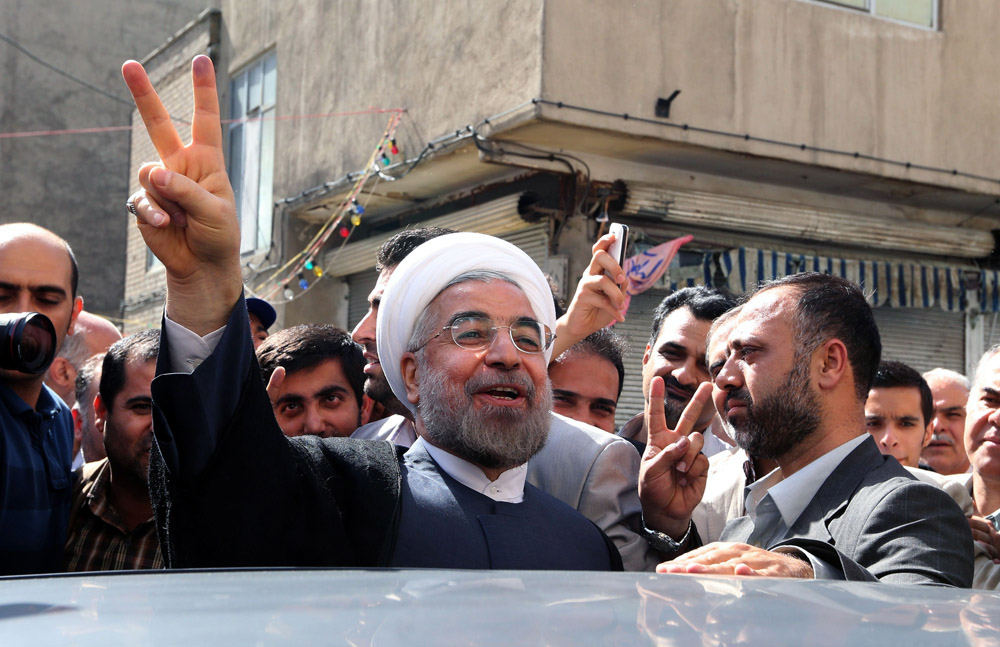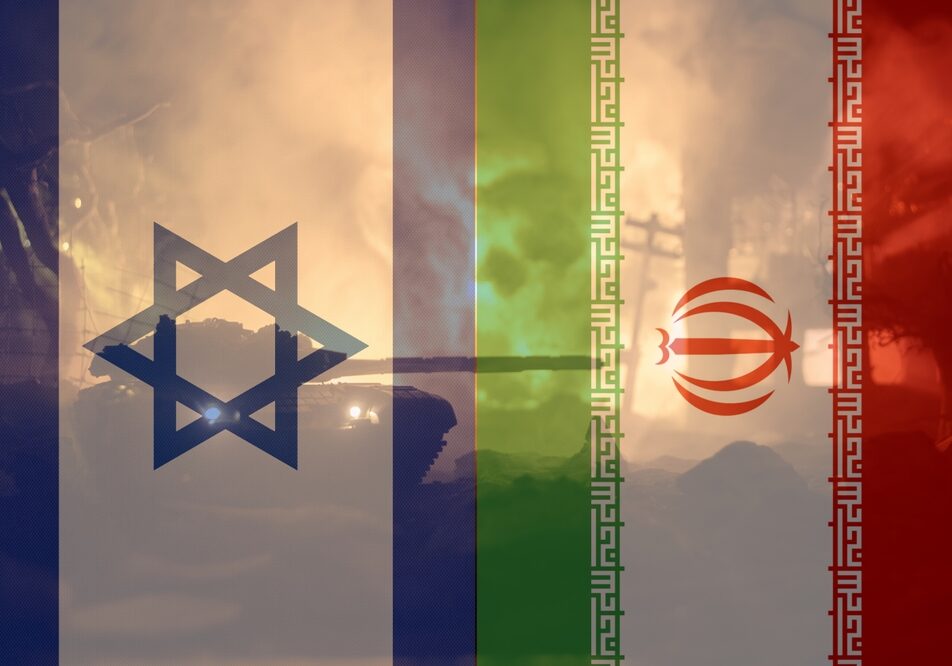Australia/Israel Review
Teheran’s New Face
Jun 26, 2013 | Amotz Asa-El

Amotz Asa-El
Iran has surprised the world again. Following the unpredicted elections of the outspoken Mahmoud Ahmadinejad in 2005 and the outgoing Mohammad Khatami in 1997, Iranian voters have now elected Hassan Rouhani, the less radical of six candidates, thus confounding diplomats, spies and statesmen.
While part of the clerical establishment and no democratic redeemer, Rouhani speaks six languages, has a law PhD from Glasgow Caledonian University, and as such, is the provincial Ahmadinejad’s inversion. Then again, the change of style he brings may well prove to be all he has.
Revolutionary Iran’s presidency has been impressively stable. Since the first two presidents – successively impeached and assassinated in the Islamic Republic’s first two years – there have been four presidents, each of whom served the legal maximum of two consecutive four-year terms. While only a select few qualified to run against them, all presidents stood for election, and then functioned opposite parliaments that were at times vocal and confrontational.
The recent election was expected to be a bore after Iran’s Supreme Leader, Ayatollah Ali Khamenei, arranged the cancellation of the candidacies of former president Akbar Hashemi Rafsanjani, and of Esfandiar Mashaei, an aide to and in-law of outgoing president Ahmadinejad.
The two were shunted aside for different reasons – Rafsanjani for backing the Green Movement that demanded reforms in the previous election, and Mashaei for having voiced nationalist longing for Iran’s pre-Islamic past. The two’s removal was seen as proof that Khamenei intended to control the election in advance, so that he would not have to shape it retroactively, as he allegedly did when his candidate, Ahmadinejad, allegedly lost the ’09 election to reformist candidate Mir-Hossein Mousavi.
Indeed, this year’s approved candidates seemed like a roster of establishment darlings who would say nothing negative about the Revolution in general and its current leaders in particular. Most glaringly, all eight [two later resigned from the race] were personally agreeable to Khamenei. Then again, of all the candidates, Rouhani was the one who spoke most pragmatically, calling for dialogue with the US and criticising the modesty police that chase after insufficiently conservatively dressed women.
The very mention of the modesty police was an effective way to harness young women, many of whom are believed to be fed up with the dress code imposed on them by the regime. Even more brazenly, Rouhani called for the release of political prisoners. Thousands are believed to be populating jails throughout the country, most arrested during and after the mass demonstrations following the ’09 elections animated by an expectation of imminent change.
Rouhani’s mildly subversive rhetoric registered with young voters. With two thirds of Iranians 36-years-old or younger, his pocketing of just over 50% of the vote makes sense, as does the fact that his main rival, Saeed Jalili, got only 11%, despite boasting of a rich diplomatic record as well as an injury suffered during the Iran-Iraq War, where he lost a leg.
For his part, Khamenei was careful this time around to avoid his mistake from ’09, when he backed Ahmadinejad only to face the mass rallies that ended in mass arrests amid accusations of vote rigging. Still, Khamenei was now believed to back Jalili, whose rallies enjoyed ample crowds that chanted “death to the US” and “death to Israel.”
That is why when the results became known, the general impression was that things went awry for Khamenei again.
In terms of the public’s sentiments, the election has underscored the distress under which millions of Iranians have come to live, and also the growing gap between their expectations and their leaders’ priorities.
Jalili’s decisive defeat, and also that of Teheran Mayor Mohamed Baqr Ghalibaf, reflected impatience with the regime’s sloganeering. Simmering under that is a resentment shared by a critical mass of Iranian society in general, and the educated middle class in particular.
Khamenei’s apparent avoidance this time around of tinkering with the results may be an extension of the insecurity he has displayed since ’09, first in failing to accept the public’s demand for reforms, then in rejecting the result of the ballot, and finally, in placing reformist leaders under house arrest.
At the heart of the Iranian leaders’ insecurity lies political upheaval elsewhere in the Middle East. Knowing that millions have seen on TV how demonstrators unseated Egyptian president Hosni Mubarak and lynched Libya’s Muammar Gaddafi, the ayatollahs want the people to believe that similar scenarios in Iran are both unjustified and impractical.
In this regard, Khamenei and his circle should be happy with Rouhani’s election, as it both creates an impression of transition and leaves them fully empowered. Then again, the pressures that made the people vote the way they did still bode ill for the regime.
The Iranian public is bending under the weight of an epic economic crisis and suffocating police supervision. The rial has lost two-thirds of its value since ’09, factories have shut down in the thousands according to the presidential candidates themselves, and effective unemployment is estimated at nearly one-third of the workforce.
With Europe having ceased to buy Iran’s oil, the energy sector’s revenues are believed to have plunged more than 50% while the lack of access to foreign capital as a result of the sanctions is fanning inflation, which is unofficially estimated at more than 100%. Millions reportedly reduced their meat consumption to only a few meals per month, and there have been reports of people grabbing bread from passersby in the streets.
Rouhani’s job, as far as the mullahs are concerned, will be to somehow cure the economy. However, no meaningful treatment can be applied to the economy without breakthrough on the diplomatic front. Judging by the first press conference he gave, Rouhani understands this and intends to make the easing of sanctions his first priority.
Apparently, his plan is to rewind the diplomatic process eight years, to where it was back when he was Iran’s negotiator under then-president Khatami. That is what the president-elect evidently meant when he said that Iran is prepared to be more transparent but not to cease enriching uranium.
In itself, such an attitude is a non-starter. However, Rouhani only assumes office in August, and his initial statements may prove to be an introduction to more substantive concessions as part of a quest to climb down the nuclear tree and open up the economy.
This will take a while to discern – at least his first six months in office – and any change will not reflect his choices, but Khamenei’s. That is also why Rouhani has not even hinted that he has any misgivings about Iran’s deep involvement in Syria and Lebanon, a policy that is costing Teheran dearly in both troops and funds, but is out of the president’s purview.
Similarly, no one knows what Khamenei thinks about Rouhani’s election promise to release political prisoners, and whether such a move can be made by the president independently.
In short, there is no indication that Rouhani is either empowered or inclined to steer Iran in a new direction, whether economically, politically, diplomatically or militarily.
For now, all that can be said about Rouhani’s delivery is that he is avoiding Ahmadinejad’s abrasiveness, having said repeatedly that he is seeking dialogue and also calling Israel publicly by its name rather than “the Zionist Entity” as his predecessor did habitually. In the same spirit, Rouhani has also avoided the outgoing president’s Holocaust denial.
Otherwise, he fully shares his superiors’ hostility to Israel, having recently praised Syria for resisting Zionism and before that working to support Iran’s nuclear effort, albeit from its diplomatic side.
Even so, Rouhani’s election was greeted in Washington positively, as an opportunity for the beginning of some change. In Moscow, officials claimed Teheran was prepared to end uranium enrichment to the 20% level, a formula that – if confirmed by Teheran – might be agreeable to the US and Europe.
In Jerusalem, however, the Iranian transition is being interpreted as more of the same. “Iran will be judged by its actions,” said Prime Minister Binyamin Netanyahu wryly, adding that the election was undemocratic, having featured only candidates handpicked by Khamenei.
Even so, pundits believe Rouhani’s election will delay potential military action against Iran’s nuclear program by several months, as Washington will quietly demand, and Jerusalem will quietly accept, a grace period for Iran’s new president. This means that even if an attack is to happen, it will not be waged before next year.
If true, this delay can be crowned as Rouhani’s first accomplishment. Then again, it may also be his last.
Tags: Iran






